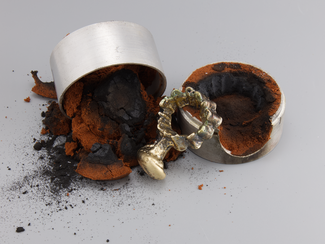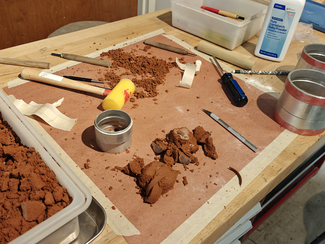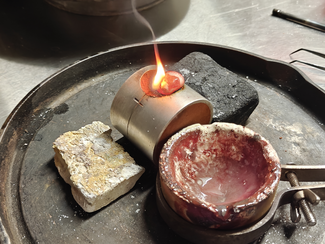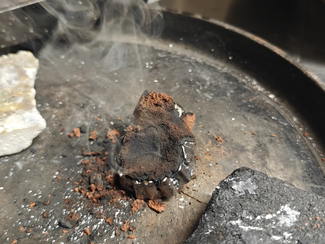Delft Clay Casting
Sand casting is perhaps the oldest method of casting, and it is still used for many applications to this day. In this two-day workshop, students will learn how to utilize this ancient technique using modern materials (bronze casting grain and delft clay). Students can expect to create several small cast bronze objects, and possibly some ideas for future projects that utilize this technique.
Students are encouraged to bring in small simple objects that they wish to make a bronze copy of, time permitting. The object should be metal or some other hard material that can withstand pressure and it should not exceed 1 cubic inch (1" tall x 1" wide x 1" deep).
Registration closes one week before the class start date.
Meet the instructor
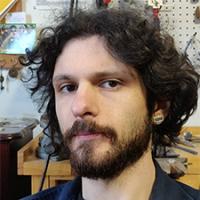
William Vanaria is a Massachusetts based artist with a penchant for oddball materials. His work utilizes traditional metalsmithing techniques and a wide verity of non-traditional materials to produce jewelry which both questions and comments on notions of romanticism, value, fakery, and the hierarchy of materials present within modern day consumer culture. Through his work he pushes for a broader system of value which has been formulated though experience, consideration, and critical thinking.
William received a Bachelor of Fine Arts degree from the Massachusetts College of Art and Design with a concentration in "Jewelry & Metalsmithing" in 2012. Afterwards, he spent time working within the jewelry industry and volunteering as a teacher's assistant for various art institutions. He found that the latter was much more fulfilling, so he went on to further his education within the arts and to pursue a career in teaching. William received his Masters of Fine Arts degree from the University of Massachusetts: Dartmouth in 2016; once again with a concentration in "Jewelry & Metalsmithing."
Materials & Tools
There is a $20 materials fee for this workshop that is payable upon registration. The materials kit includes bronze casting grain (2ozt), delft clay, # 2 saw blades, Mizzy wheel, a screw mandrel, and other various miscellaneous materials needed to complete class project. This fee also covers the cost of various other communal studio supplies needed to complete exercises and projects (eg. gas, pickle, sandpaper, etc.).
- At least 1 x Object to replicate via casting that is hard (can withstand pressure) and no larger than 1 cubic inch (1" tall x 1" wide x 1" deep)
- Closed-toe shoes - required in the Metalwerx studio
- Notebook and writing implement - for notes / sketches
- Reading glasses - if needed

